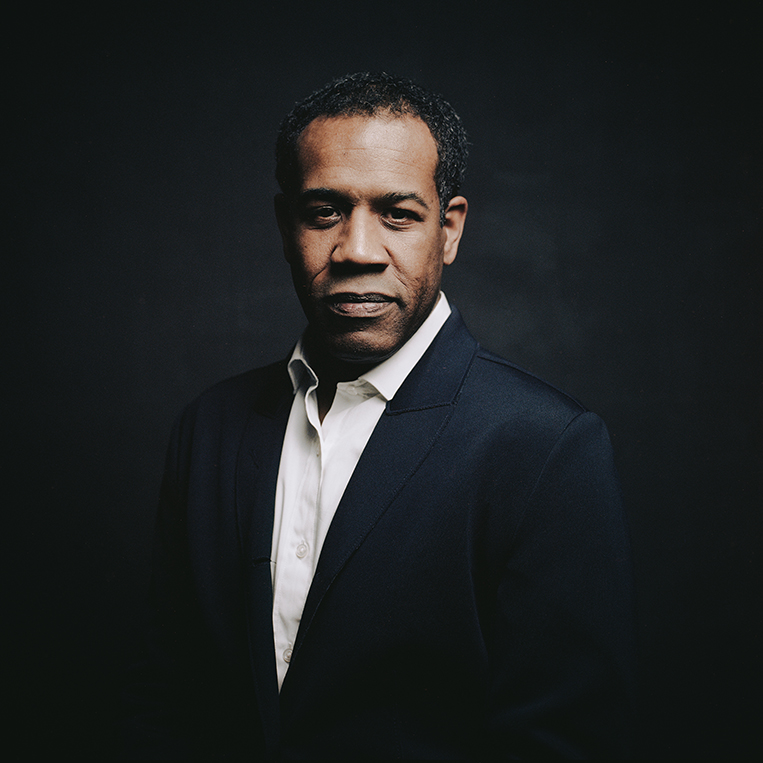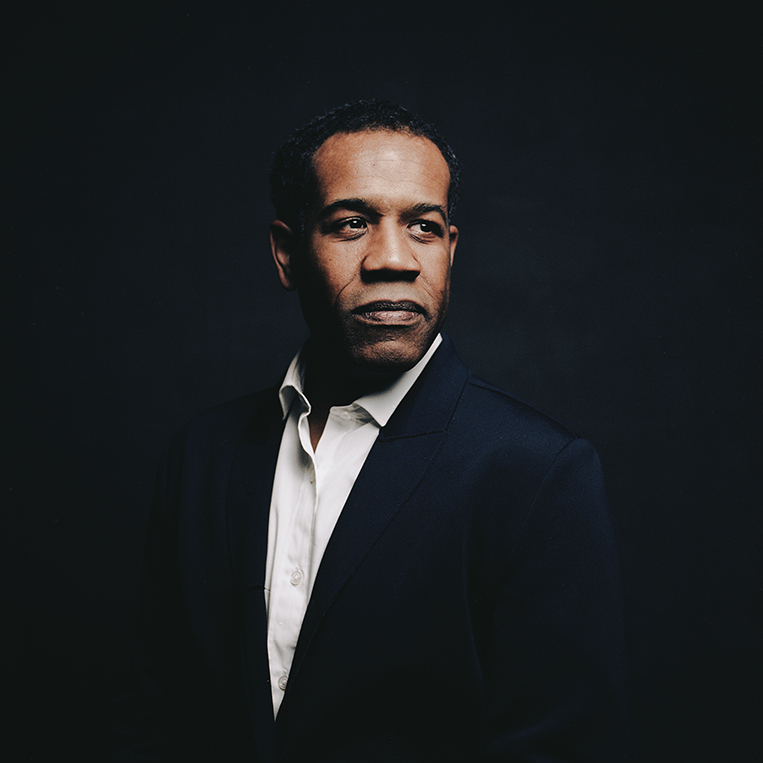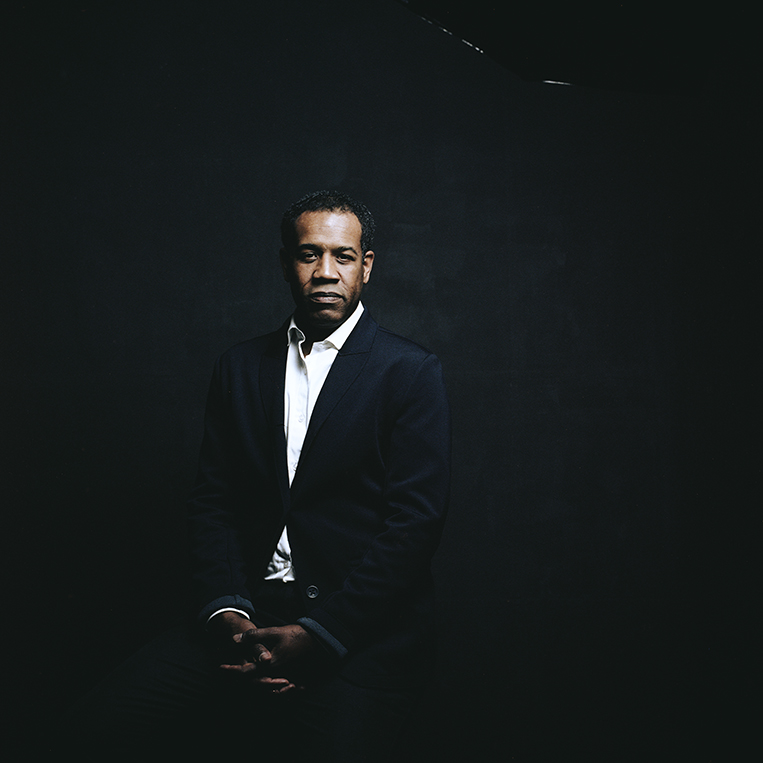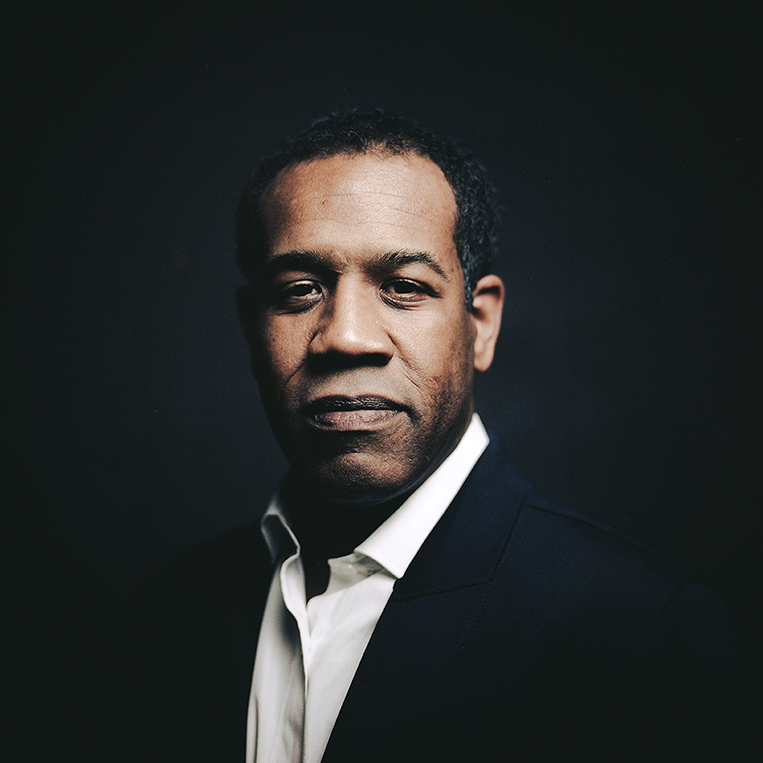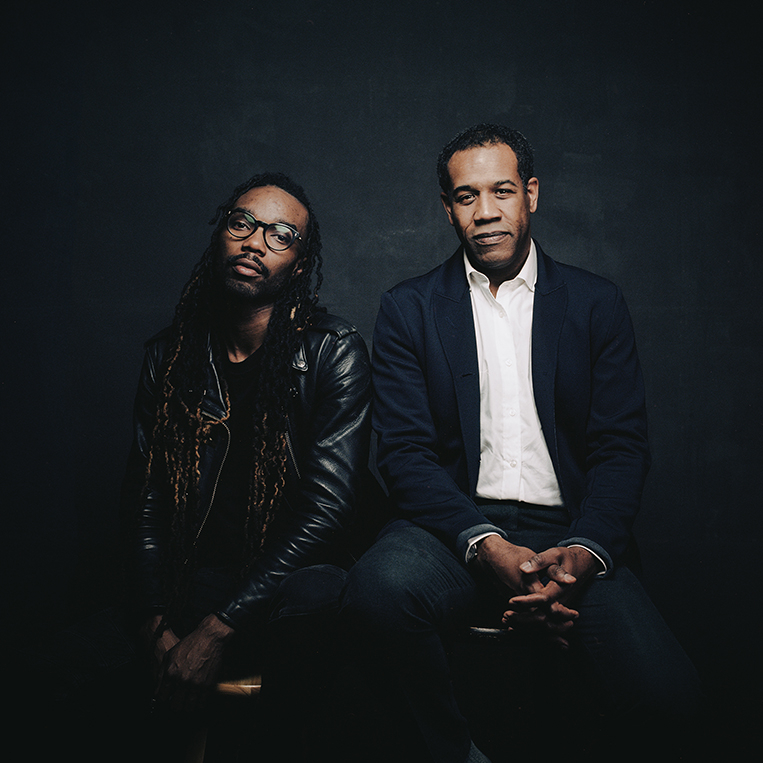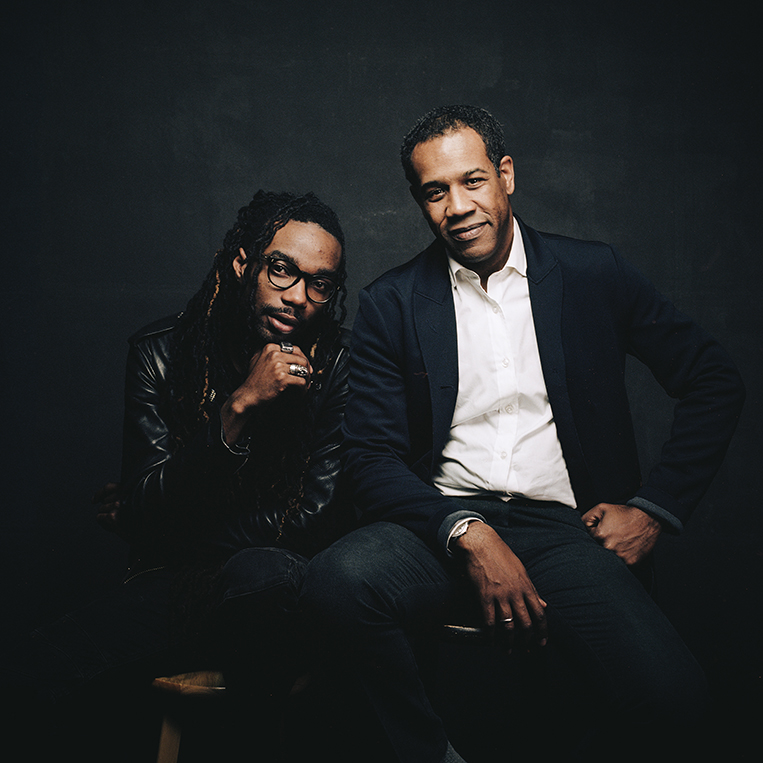If nothing succeeds like success, Air Traffic: A Memoir of Ambition and Manhood in America is Gregory Pardlo’s noble attempt to show what becomes of the people who die trying. “My father’s world operated on homespun destiny,” Pardlo writes about his late father, Gregory Pardlo Sr., who lost his job as an air traffic controller during the Professional Air Traffic Controllers Organization (PATCO) Strike in 1981, “the kind of destiny that was dictated by character and the inevitability of Hollywood endings.” While it was this belief in the inevitability of Hollywood endings that fueled Greg Sr.’s decision to see the strike to its end, president Ronald Reagan’s firing of the 11,345 air traffic controllers who refused to return to work two days later was a dismal reminder that life ain’t a movie. That for all we, as Americans, want to believe in the Dream; here is our rude awakening.
The essays in Air Traffic, published this month by Knopf, function like someone who jumps up from sleep, thinking the nightmare is over, only to discover this is reality. Pardlo’s rendering of his life and the people in it takes on a quiet nobility because the author resists the temptation to achieve any simple resolutions. There are no grand statements to be made. No fortune cookie wisdom. No moral to the story. If Greg Sr. was driven to death by the promise of the Hollywood ending, Pardlo is in the parking lot of life doing donuts. This is where Air Traffic succeeds.
Instead of showing the ways in which Greg Sr.’s ambition makes his family exceptional, Pardlo undermines that ambition by highlighting the ways in which the paternal failure makes them like everyone else. Pardlo’s understanding that he is nothing “special” enables him to come to terms with some of his own failures as a father, husband, and poet.
I interviewed Pardlo at his home in Bed-Stuy, Brooklyn, where we talked about his aversion to happy endings, his disillusionment with narratives of progress, complicated relationship to his Pulitzer win, and why alcoholism is like religion.
One of the first things I want to talk about in regards to Air Traffic is that the book ends without any real sense of closure. As if the wounds you’re describing haven’t healed yet. What was your intention in ending the book this way?
My aesthetic in general is not to pursue a conclusion. Real early on in my writing development, I read Lyn Hejinian’s essay, “The Rejection of Closure.” That essay had a big impact on me in thinking about how to avoid the Disney kind of happily ever after ending. Life doesn’t work that way—particularly when you’re talking about an addiction or recovery narrative. The idea that one can be sick, and be healed, and be done with it is not a narrative that works in terms of recovery. There is no recovery. Just a lifetime of maintenance.
One of the strategies I had when I started writing the book was to look for the opposing ideas. Where I have one argument being made affirmatively in place, I want to make an opposing argument in another. I’m working against the idea of a narrative having a teleological arc; this idea that the story is moving towards something.
This is a book about manhood, and a lot of it is focused on your father, but I was wondering: What was behind your decision to not write about your mother as much? Not only do you describe her as the one who holds the family together, but it’s difficult to talk about manhood in all its nuances without the women who help to contextualize what that manhood means.
If I’m going to be honest, it’s garden-variety sexism that the role of the mother, in the family, was always a secondary presence. Although she was most certainly a primary presence in my day-to-day life, in my imaginative life she was a supporting character. It sounds awful to say that but flat off, the impulse was to deal with my dad.
When I first started this book, I was most interested in the PATCO strike and the labor history around it. The more I learned about the strike, the relationship between the FAA and the controllers became more clearly paternal—so that theme of the father-son relationship pulled me in that direction. Then I discovered I’m not really dealing with my dad; I’m dealing with myself.
While I was writing this book, I was regularly visiting my therapist. One of her questions early on was, “When are you going to write the essay about your mom?” I didn’t know how [to write an essay about her] because my mother has always been a far more complicated character to me than my father. Case in point, for the intervention piece—which is not only the last piece of the book, but also the last piece that I wrote—I interviewed my mother. I wrote the piece and sent it to her. She wrote back that she loved it but felt that my depiction of her was a little harsh. My depiction of her was in service of her own ego, but that is the logic I applied to my dad. It doesn’t apply to her. So I’m still trying to find the emotional framework to render her fully.
Though the book is labeled a memoir, it reads so much more like essays in that the writing seems to be more concerned with the journey than any particular destination. There’s this very subtle way in which your father’s wanting to be the center makes you feel like you’re the supporting character in your own life. And you write every essay as though you’re experiencing your life through the eyes of someone else as opposed to your own.
Even the way you describe your drunk episodes, they seem sort of like they’re just treated as incidental. I felt it was an honest depiction of how our problems tend to happen in real time. They manifest themselves in the background. If it were something that you’re going to take hold of and keep in your eyesight it probably wouldn’t be a problem. I don’t know if you did that on purpose, but the most insidious things that happened in your life are the things you don't see. You’re so focused on your father and brother, you lose sight of yourself.
That’s absolutely right. One of the things I love about the essay is that I can have that kind of dual presence as author and character. In terms of the tension of the book, obviously there are points in there where I, as a writer, am not going to see what I’m doing entirely. There is no omniscient narrator, but there are many points in the book where I am conscious of how I'm allowing my “I” character to be flawed.
We can see the patterns of my dad’s big, tragic moment set against my own tragic moment and my brother’s tragic moments. If not explicitly, “narrativizing” the blind spot is definitely an agenda of the book. It is a strategy of mine to read the character of “I” as a character, which means there are flaws that I, the writer, am aware of after the fact. As a writer I can see the thing my character “I” did and say, “Oh, well that was stupid,” but it’s not for me to go back and correct it. I don’t need to protect him. I don’t need to justify him.
That being said, the book does have this sort of arc where the beginning is so much more “ambitious” than the end. In the first essay we’re introduced to your father, who is determined to die in this grand way. But as the book goes on, ambition is subdued—in that everything, in comparison to your father’s death, just seems so much smaller. I’m wondering if that’s a question that this book is concerned with: What happens when you have too much ambition in a world that doesn’t make space for it, or doesn’t believe certain people—like your father—should have any?
You’re right. I think it’s my disillusion with the narrative of progress altogether. By damn near every metric of the American Dream, my life is a success story, but there is no point at which I want to stop and say, Alright we’ve made it. We think about the narratives of black progress, of uplift, and how that narrative has this teleology. What is the end game of the black uplift story?
How do we know when we’ve made it? My frustrations with that narrative—and how that narrative keeps us thinking about racism as the one dominating presence in the lives of black folks—was a distraction. There’s some shit there obviously. But I realized that so much of our family narrative was distracted by racism, by larger sociopolitical narratives, so that we didn’t pay attention to the ways that we interact generationally.
When I say this I’m thinking about Gayle Jones’s Corregidora. How the great-grandmother’s trauma gets passed down so that generations later, you still hate the slave master ’til the point that you’re unable to focus on what you’re doing in your own life. The extent to which I worship my father is a direct consequence of the way he makes himself a hero in my life. I grow up believing that his progress, his narrative, is more important than mine. I am a supporting character in his story. His story is the story of black uplift. His story is the civil rights story. My generation and on, however, are just there to bear witness to that narrative—and I realize that my father couldn’t see how he was part of this intergenerational story that was supposed to go beyond him because, in his mind, his story ends with him.
This goes back to narrativizing my own blind spot. As an artist, as a writer, as a person in the world, how do I claim my life, in service of my life, as opposed to being this subordinate character in my father’s? Or in service of the civil rights narrative? Or in service of some class, racial uplift narrative? How do I just do what I want to do and not feel beholden to some larger American narrative?
So is ambition something that you actually come to own or is it something that you inherit like debt? You inherit this sense that you have to do something bigger than yourself to prove that you have a right to exist. In this sense, any grand scale achievement, like your Pulitzer win, becomes a symbol of “progress.”
Right, when people come up to me and say, “You being a black Pulitzer Prize winner is important for the community,” I’m like well, that’s awesome, but I also just like writing poems. And I would also like to be congratulated for writing nice poems.
When you won the Pulitzer what was your honest response to it? Block out the white noise of everyone else responding to you. How do you, Gregory Pardlo, feel?
Fear, because I am sensitive to the ways other people’s narratives inhibit my ability to craft my own.
So if the larger narrative is about this black man who wins the Pulitzer and whatever else we turn this into for our own gain, what would be the Gregory Pardlo narrative about winning the Pulitzer?
It would be: We gotta read these poems more closely, and talk about these poems more, which, of course, is a consequence of the Pulitzer. But I think the larger, predominating narrative is “Look at this black man winning this historical prize.”
One of the things I heard a lot after it was announced that I was awarded the Pulitzer was, “When I found out you won, I felt like I did too,” which is great. I don’t resist that narrative, but what that also feeds into is me being a kind of inverted sacrificial lamb. That what I have done was in service of this larger thing that has nothing to do with me. As soon as I try and answer that question, I find myself reaching for somebody else’s narrative about my potential.
It also sounds like what you describe your father did anytime he wasn’t the center of attention: He found a way to steal it. It’s not really your win; it’s everybody’s win, which is to say no one won. But that doesn’t fully answer my question about what you would want the narrative of the Pulitzer win to be. I think this is the central difficulty of what this book is trying to articulate: How do you think outside of those contexts that define you?
As much as I want to wrest control of my own narrative, it is ultimately dependent on the larger context from which I derive my identity. I cannot be an isolated person in the world. My enjoyment of life, my sense of self-worth, is tied up in the ways I feel that I contribute to other people’s lives.
Something that I didn’t get around to writing about, but is probably in one of the early drafts and notes, is that having children was so important to me [because] that…was my father’s story. My great-grandfather, grandfather, and my dad all had kids—and I didn’t want to be the one to drop the ball. I can’t isolate my loving my kids from the pride I take in being a father as part of this lineage of fatherhood.
But at the same time, the contradiction there is I do say that I wish I was standing at the podium holding this trophy, not for the sake of the larger community, but to get my father’s acknowledgement. The trophy is a measurement of success that my father would recognize.
In the essay “Intervention” you ask your younger brother, Robbie, how he wants to be remembered when he’s no longer here. I’m going to ask you the same question—how do you want to be remembered?
Having had this conversation and thinking about my legacy, an ambitious telling would be to have Gregory Pardlo High Schools around the country. What that symbolizes for me is a sense of permanence.
In this same essay, you also described your alcoholism as being the closest thing you have to religion. What did you mean by that?
That is the only place that I feel it’s necessary to acknowledge helplessness. If the ambitious me feels like I can contend with whatever happens in the world outside, the thing that I cannot promise myself with any sense of security is that I’m going to be sober tomorrow.
Alcoholism is the one clear space in my life where my ambition is neutralized. There is no external narrative there. I am entirely in relation to myself. And the only way that I can even look forward to being sober tomorrow is by acknowledging that I have no control over that promise. It’s necessary for me to humble myself in the face of that threat.
Yahdon Israel is a writer, from Bed-Stuy, Brooklyn, who has written for Avidly, the New Inquiry, Brooklyn Magazine, LitHub, and Poets & Writers. He graduated from the MFA Creative Non-Fiction Writing program at the New School. He is the Awards VP of the National Book Critics Circle; runs a popular Instagram page which promotes literature and fashion under the hashtag Literaryswag, and host a web show for writers called LIT.
Photographs by Rog Walker.







